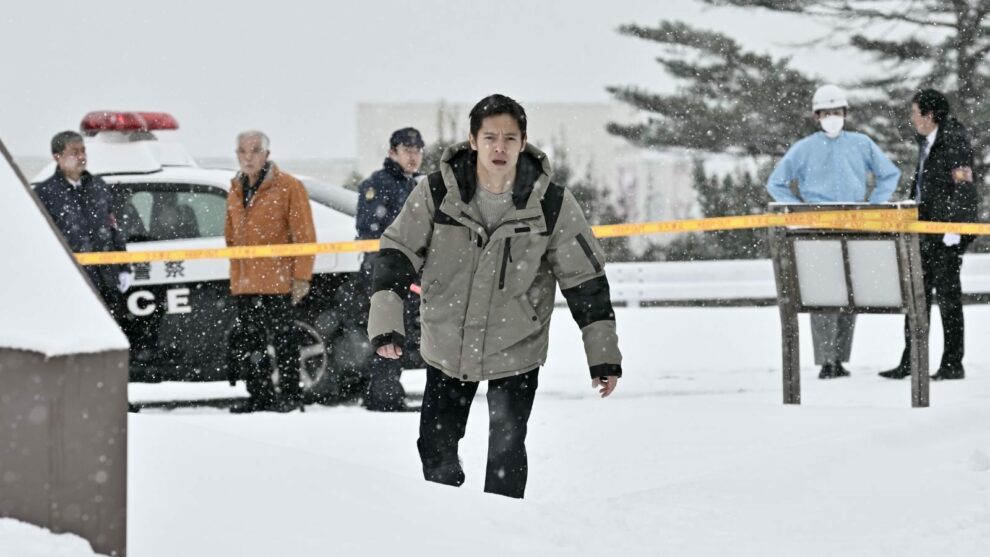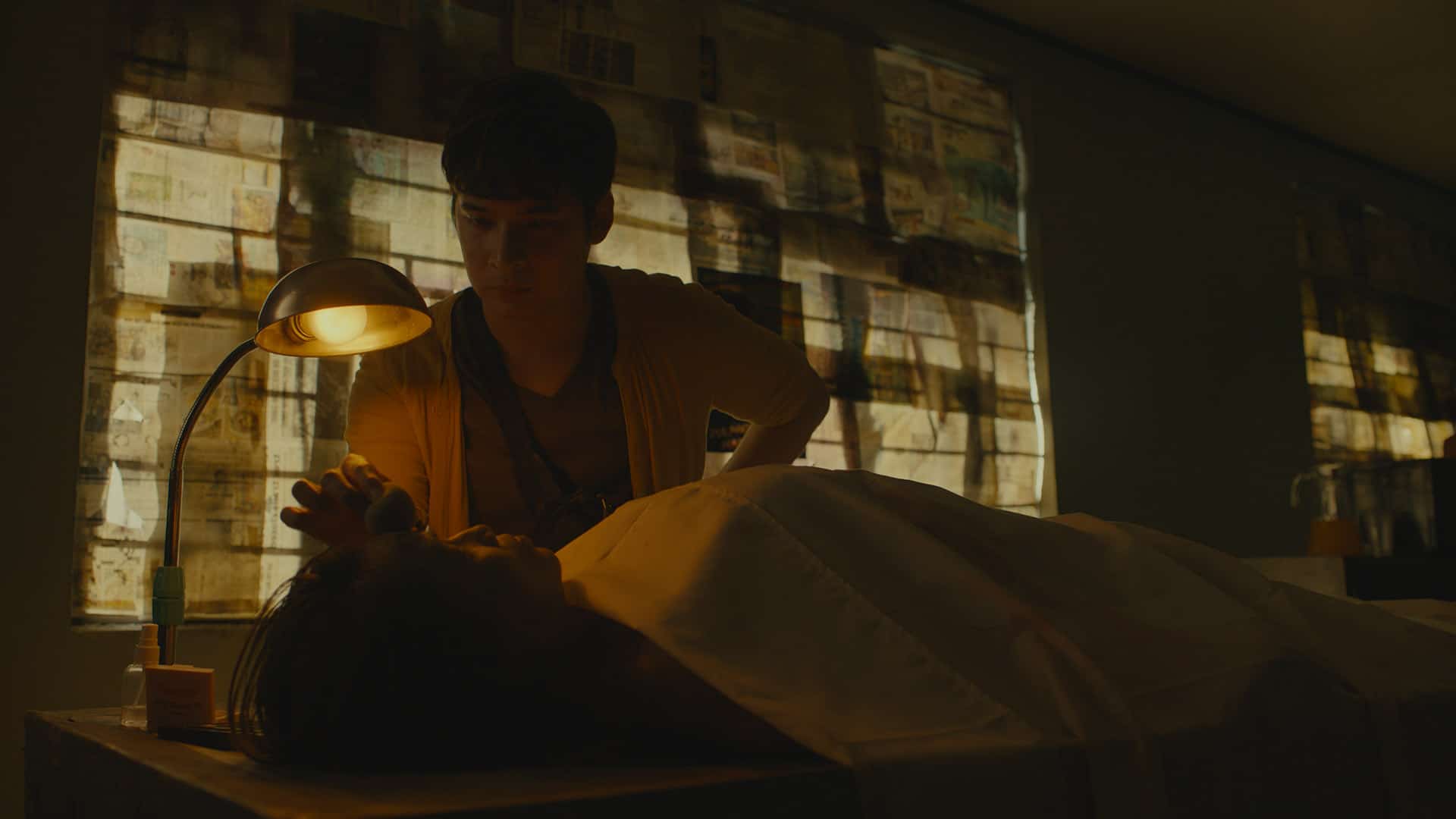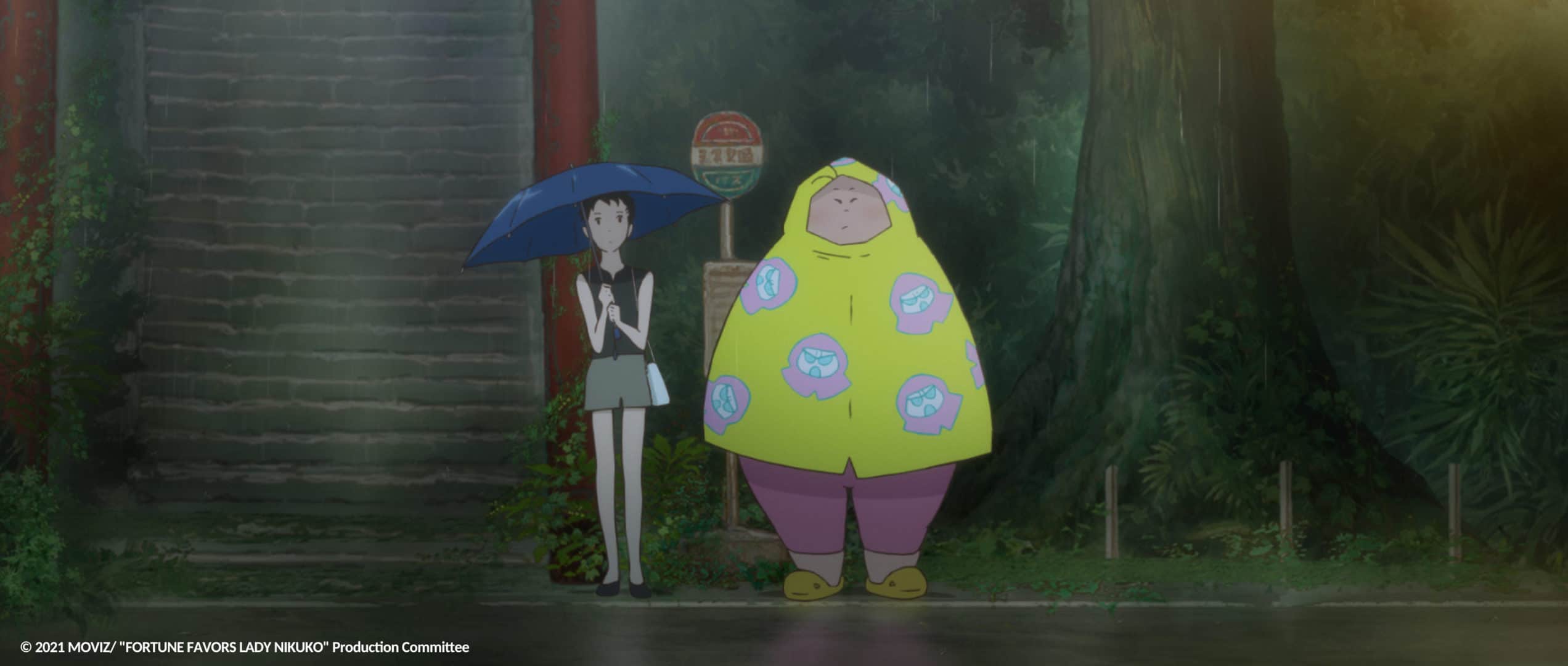Takumi Saitoh is a truly unique talent, who, after proving his prowess as an actor (he now has 165 credits to his name) continued in the same level as a director, with his segments in “Folklore” and “Food Lore”, and the features “Blank 13” and “Comply+-ance” being truly top notch. As such, his latest work, “Home Sweet Home”, based on the homonymous 2019 novel by Rinko Kamizu was one of the most anticipated films of the year. Let us see how he fared.
Back Home is screening at New York Asian Film Festival

Living in the harsh winter of Nagano, Kenji Kiyosawa, a sports instructor, is tired of being cold along with his wife, Hitomi, and newborn. As such, when he stumbles upon a company that manufactures pre-built houses that implement a technology that can warm the whole establishment with a single air-conditioner, his enthusiasm is unprecedented, as much as for his wife. Despite their financial situations, they manage to find a solution to pay for the whole thing, tasking the architect who introduced them to the concept, Ms Honda, with building it.
A bit later, they are living in a truly ergonomic house, along with their second baby, but the problems for them have already started from before. One of the people working for the company that built the house, Koichi Amari, was actually angry that they assigned the construction to his female colleague, and as time passes, his behavior becomes more and more creepy. Shadows reflected in the baby's eyes, noises from the basement, and an effort to trap their daughter in the basement highlight that something is very wrong. Furthermore, Kenji who used to have an affair with a colleague, Yurie, while also having some family issues from the past, with a father that is dead and a brother, Satoru, who seems to have some mental issues, finds himself having to face his choices again, in a truly explosive mixture that also has his wife mental status deteriorating and a number of people around them getting killed.
In a testament to Takumi Saitoh's directorial abilities, “Home Sweet Home” thrives on two axes, for the most part. The first one is the way he manages to artfully mix the family drama with the thriller/horror and the whodunnit, with the first providing the base and the second the small nuances that make the mix quite intriguing. The weird behaviors in particular, which are presented through brief scenes here and there, along with some flashbacks, are a true wonder to watch. This aspect also benefits the most by the excellent acting by the secondary actors, namely Yohei Matsukado as Koichi, Nao as Ms Honda, the female architect, and Yosuke Kubozuka as Satoru giving great performances, whose overall demeanor is the one that lets the horror gradually creep into the narrative. The same applies to some smaller scenes, as the one with the spiders and some voyeuristic ones, while the whodunnit element becomes more and more intense as a number of people are killed and the officer who handles the case (another great acting from Ayumu Nakajima) does not seem to have any particular answers.
And talking about the acting, Masataka Kubota's anchoring performance is exceptional, with him exhibiting a plethora of emotions and psychological statuses in the most artful and eloquent fashion, and with an admirable sense of measure that essentially sets the tone for the whole film.
This atmosphere is the second axis the movie thrives on, also benefiting the most by Akiko Ashizawa's cinematography, and particularly the way she captures the eyes of the protagonists with close ups, the cramped, dark locations within the houses, and the overall use of lighting and the coloring, with the slightly desaturated palette and the grayish tones working quite well here. Lastly, the fact that the “haunted” house is not a decrepit, gothic-like mansion this time, but a smart-home with all the comforts of modern living is an excellent idea that is also well implemented by the production values.
On the other hand, some issues with Yutaka Kuramochi's writing do exist. In that fashion, the story seems to include too many characters, episodes, and story elements, with the child abuse, the murders, the unusual brother, the creepy realtor, the blackmails, the cheating and the issues HItomi faces being too many for one story. The effort to include them all in the end faults the film to a point, with the script looking too far- fetched, and a number of the aforementioned essentially being forced into the narrative in a way that makes them feel rushed and disconnected. Some economy in that regard would definitely benefit the movie, whose script essentially looks more fitting for a multi episode series than a single spectacle.
Despite this issue, however, as a whole, “Home Sweet Home” definitely makes sense, and the sum of atmosphere, acting, cinematography and genre amalgam results in a movie that definitely deserves a watch.















